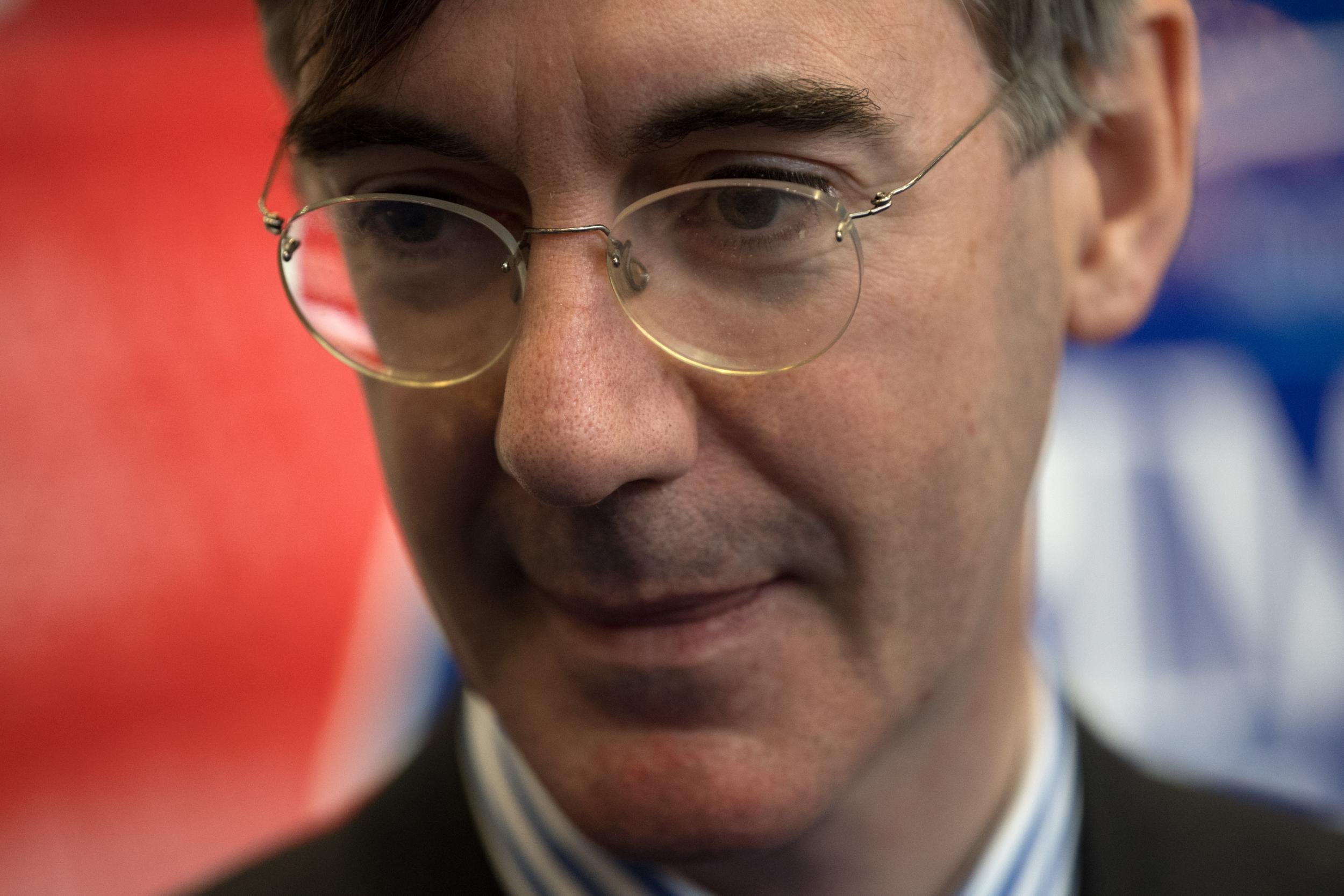Brexit: Theresa May faces backlash over claims in Brussels that UK has 'agreed in principle' to Norway-style transition
Conservative MP Jacob Rees-Mogg warned that any transition deal replicating the status quo will be seen as ‘failure’

Your support helps us to tell the story
From reproductive rights to climate change to Big Tech, The Independent is on the ground when the story is developing. Whether it's investigating the financials of Elon Musk's pro-Trump PAC or producing our latest documentary, 'The A Word', which shines a light on the American women fighting for reproductive rights, we know how important it is to parse out the facts from the messaging.
At such a critical moment in US history, we need reporters on the ground. Your donation allows us to keep sending journalists to speak to both sides of the story.
The Independent is trusted by Americans across the entire political spectrum. And unlike many other quality news outlets, we choose not to lock Americans out of our reporting and analysis with paywalls. We believe quality journalism should be available to everyone, paid for by those who can afford it.
Your support makes all the difference.Conservative MPs have told Theresa May Britain must not be bound by EU rules during the Brexit transition period, after it was claimed in Brussels that the UK had already “agreed in principle” to a Norway-style deal.
One warned it would be seen as a “failure” if the UK had to accept EU regulation and the European Court of Justice’s jurisdiction in the transition.
Leading figures on the right of the party spoke out after The Independent reported comments from a senior European parliamentarian who said British officials had not objected to the arrangement in meetings.
Plans said to have been accepted by the UK side would mean the country keeping full access to the single market but accepting free movement and customs union rules.
Jacob Rees-Mogg told The Independent: “If civil servants are doing that then they are surreptitiously wiping out the Prime Minister’s red lines.
“She has been clear that leaving the European Union means that we are no longer subject to the Court of Justice, that we stop making payments and that we control our own borders.
“If the transition doesn’t give us those then it isn’t a transition, it is remaining a member of the European Union and it is simply an extension of our membership without any votes – that would be a negotiating failure for the Government.”
Despite Ms May having indicated she wants an “implementation period” in which EU-UK trade operates on “current terms”, an agreement which maintained the broader status quo could drive a wedge through her party.
It isn’t a transition, it is remaining a member of the European Union and it is simply an extension of our membership without any votes – that would be a negotiating failure for the Government
But the prospect appeared a step closer after Belgian MEP Philippe Lamberts claimed UK negotiators are going along with proposals that mean after Brexit in March 2019, Britain will continue as a member of the EU in “all but name” until at least December 2020.
Mr Rees Mogg went on: “It’s a very high-risk position for the Government to take because if, for example, in that period the EU introduced a financial transaction tax, we’d then be bound into it.
“Regulations could be passed that are extremely damaging to the UK’s interest and we would have no ability to challenge it and our superior court would be the ECJ.
“It would not recognise the referendum result, it would not meet the Prime Minister’s promises in Lancaster House and therefore would be a failure.”
In her keynote speech in Florence, Ms May said that “during the implementation period access to one another’s markets should continue on current terms and Britain also should continue to take part in existing security measures”.
Another Conservative backbencher Andrew Bridgen said the UK had to be free to fully negotiate trade deals during the transition, something which would run counter to customs union rules.
“The Prime Minister has been clear that there’s only going to be one change so that businesses can avoid disruption,” he said.
“But what we do need to be able to do during that period is holds talks and negotiate full trade deals so that they are ready to sign on the very day it ends.”
Responding to the story this morning Downing Street emphasised that the guidelines have not been “set out for the implementation period” yet.
“The Prime Minister has obviously discussed this in her Florence speech you can look at her words in that, but to suggest agreement has already been reached would be wrong,” it added.
Chancellor Philip Hammond was attacked by Tory Brexiteers when he said in a speech last year that the UK was minded to go along with EU plans that would “effectively replicate the current status quo”.
A group of MPs in the Commons who backed Remain have also long said that the UK should remain in the customs union and single market during the transition period, and even longer.
Labour MP Chuka Umunna, a leading supporter of the Open Britain campaign, said: “Theresa May has wasted so much time trying to placate the Brexiteer right in her party, but has still arrived at this inevitable position not least for practical reasons.
“But, whilst necessary to allow businesses to plan, transition is no safe harbour from eventually jumping off a cliff as the Tory party seems intent on doing. It simply delays the pain.”
Join our commenting forum
Join thought-provoking conversations, follow other Independent readers and see their replies
Comments